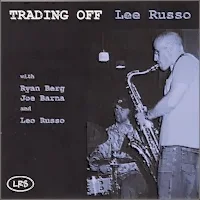Time: 48:23
Size: 110.8 MB
Styles: Caribbean rhythms
Year: 2012
Art: Front
[3:39] 1. Aniversario
[3:11] 2. Damelo Aqui
[4:44] 3. Gracias A La Vida
[3:49] 4. Sosega Ta Miho
[4:51] 5. Bon Man'e Un Habon
[4:28] 6. De Repente
[7:10] 7. Kantika Di Despecho
[4:26] 8. Mi Sa
[3:43] 9. Pirata Di Amor
[4:40] 10. Sirkulo
[3:37] 11. Un Kurason
Curaçaoan singer Izaline Calister recently released her seventh music album called Kandela [Fire] on which she performs Cuban boleros, Brazilian bossa novas and other Latin American music in Papiamentu, her mother tongue. In the following interview with Peter Bruyn of Het Parool she explains the Latin tang of Kandela and the purpose behind writing songs.
“My mother would listen to a lot of Curaçaoan music,” says Izaline Calister. “But my father also played all sorts of music from Latin America and we used to watch Venezuelan television every day. I thought, after six albums with strictly Antillean music, it is now time to pay attention to a different part of my heritage. After all, one of every three songs you hear in Curaçao is in Spanish, is Latin.”
Kandela is the name of the new album by the Antillean diva who lives in the Netherlands. She has dedicated it to her father. Kandela expands her musical spectrum, but it is not because of a desire to conquer the rest of South America. Calister: “I was ready to broaden my horizons anyhow. And I already did so many Brazilian songs when I studied at the Conservatory. All cultures with a slavery past basically have comparable rhythms: Brazil, Cuba, Venezuela, the Antilles – it all eventually goes back to Mali and Senegal.”
“My mother would listen to a lot of Curaçaoan music,” says Izaline Calister. “But my father also played all sorts of music from Latin America and we used to watch Venezuelan television every day. I thought, after six albums with strictly Antillean music, it is now time to pay attention to a different part of my heritage. After all, one of every three songs you hear in Curaçao is in Spanish, is Latin.”
Kandela is the name of the new album by the Antillean diva who lives in the Netherlands. She has dedicated it to her father. Kandela expands her musical spectrum, but it is not because of a desire to conquer the rest of South America. Calister: “I was ready to broaden my horizons anyhow. And I already did so many Brazilian songs when I studied at the Conservatory. All cultures with a slavery past basically have comparable rhythms: Brazil, Cuba, Venezuela, the Antilles – it all eventually goes back to Mali and Senegal.”
Kandela




















